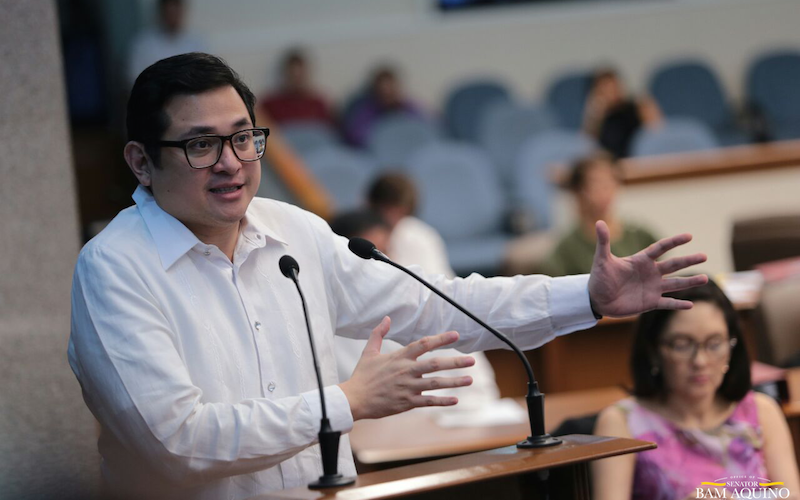Sen. Bam: Lawmakers committed to fund free tertiary education completely
Sen. Bam Aquino is confident that Congress will allot the necessary budget for the free education in state colleges and universities and local colleges and universities once the measure is enacted into law.
“The Majority and Minority are committed to fund this revolutionary initiative,” said Sen. Bam, principal sponsor and co-author of the Universal Access to Quality Tertiary Education Act in the Senate.
“Upon its ratification last week, Sen. Loren Legarda, Chairman of the Committee on Finance, committed to fund this as well,” said Sen. Bam, who estimated the annual budget for free tertiary education to be between P50 to P53 billion.
The senator is also confident that Malacanang will support the measure, being a major reform for education and poverty alleviation in the country.
The Senate and the House have both ratified the bicameral conference committee report. It will now be transmitted to Malacanang for President Duterte’s approval.
If passed into law, education in SUCs, LUCs and vocational schools under the Technical Education and Skills Development Authority (TESDA) will be virtually free, with the government shouldering tuition, miscellaneous and other fees.
Another salient feature of the measure is the loan program, where students can apply for financing for other education expenses.
Sen. Bam said the loans will be tied up to Social Security System (SSS) and Government Service Insurance Systems (GSIS) payments to ensure that funds for student loans will not be depleted.
“Ito’y isang paraan upang masiguro na makokolekta ang bayad sa ibinigay na loan ng gobyerno sa ating mga estudyante,” Sen. Bam said.
If passed by June or July, Sen. Bam said students will benefit from the law starting the second semester of school year 2017-18.
Sen. Bam defended the measure in plenary debates and interpellation during his stint as chairman of the Committee on Education.
Sen. Bam was also the co-chairman of the Senate delegation to the bicameral conference committee, together with new Committee on Education chairman Sen. Francis Escudero. Other members of the Senate panel were Sens. Sherwin Gatchalian and Ralph Recto.

Recent Comments